start your day with suryanamskar Surya Namaskar or Sun Salutation is a sequence of 12 powerful yoga poses. Besides being a great cardiovascular workout, Surya Namaskar is also known to have an immensely positive impact on the body and mind.
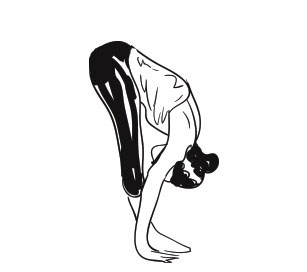
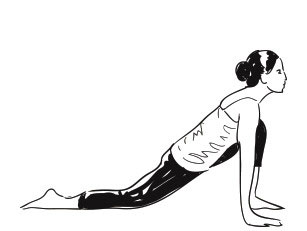
Surya Namaskar is best done early morning on an empty stomach. Each round of Sun Salutation consists of two sets, and each set is composed of 12 yoga poses. You might find several versions on how to practice Sun Salutation. However, it is advisable to stick to one particular version and practice it regularly for best results.
Besides good health, Surya Namaskar also provides an opportunity to express gratitude to the sun for sustaining life on this planet. Incredible Benefits of SURYANAMSKAR
- Helps maintain cardiovascular healtth
- Stimulates the nervous system
- Helps in stretching, flexing and toning the muscles
- Excellent exercise for weight loss management
- Strengthens the immune system
- Enhances cognitive functions
- Improves overall health, strengthens the body and relaxes the mind
Step 1. Pranamasana (Prayer pose)
Stand at the edge of your mat, keep your feet together and balance your weight equally on both the feet. Expand your chest and relax your shoulders. As you breathe in, lift both arms up from the sides, and as you exhale, bring your palms together in front of the chest in prayer position.
Step 2. Hastauttanasana (Raised arms pose)
Breathing in, lift the arms up and back, keeping the biceps close to the ears. In this pose, the effort is to stretch the whole body up from the heels to the tips of the fingers.
Tip to deepen this yoga stretch:
You may push the pelvis forward a little bit. Ensure you're reaching up with the fingers rather than trying to bend backward.
You may push the pelvis forward a little bit. Ensure you're reaching up with the fingers rather than trying to bend backward.
Step 3. Hastapadasana (Standing forward bend)

Breathing out, bend forward from the waist keeping the spine erect. As you exhale completely, bring the hands down to the floor beside the feet.
Tip to deepen this yoga stretch:
You may bend the knees, if necessary, to bring the palms down to the floor. Now make a gentle effort to straighten the knees. It's a good idea to keep the hands fixed in this position and not move them henceforth until we finish the sequence.
You may bend the knees, if necessary, to bring the palms down to the floor. Now make a gentle effort to straighten the knees. It's a good idea to keep the hands fixed in this position and not move them henceforth until we finish the sequence.
Step 4. Ashwa Sanchalanasana (Equestrian pose)

Breathing in, push your right leg back, as far back as possible. Bring the right knee to the floor and look up.
Tip: How to deepen this yoga stretch?
Ensure that the left foot is exactly in between the palms.
Ensure that the left foot is exactly in between the palms.
Step 5. Dandasana (Stick pose)
As you breathe in, take the left leg back and bring the whole body in a straight line.
Tip to deepen this yoga stretch:
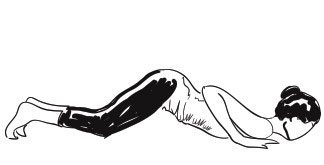
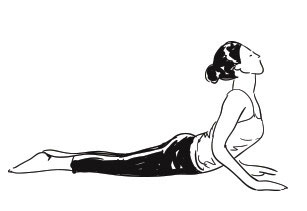
Step 8. Adho Mukha Svanasana (Downward facing dog pose)
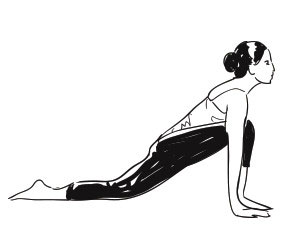
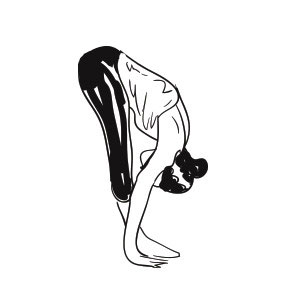
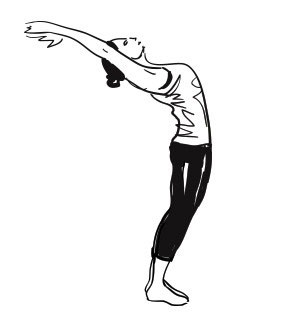
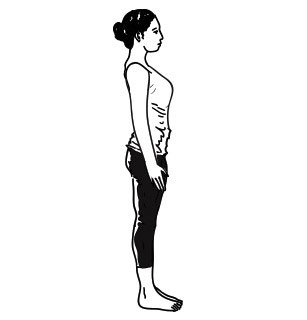
Step 6. Ashtanga Namaskara (Salute with eight parts or points)

Gently bring your knees down to the floor and exhale. Take the hips back slightly, slide forward, rest your chest and chin on the floor. Raise your posterior a little bit. The two hands, two feet, two knees, chest and chin (eight parts of the body) should touch the floor.
Keep your arms perpendicular to the floor.Step 7. Bhujangasana (Cobra pose)

Slide forward and raise the chest up into the Cobra pose. You may keep your elbows bent in this pose with the shoulders away from the ears. Look up at the ceiling.
Tip to deepen this yoga stretch:
As you inhale, make a gentle effort to push the chest forward; as you exhale, make a gentle effort to push the navel down. Tuck the toes under. Ensure you're stretching just as much as you can and not forcing your body.
As you inhale, make a gentle effort to push the chest forward; as you exhale, make a gentle effort to push the navel down. Tuck the toes under. Ensure you're stretching just as much as you can and not forcing your body.
Step 8. Adho Mukha Svanasana (Downward facing dog pose)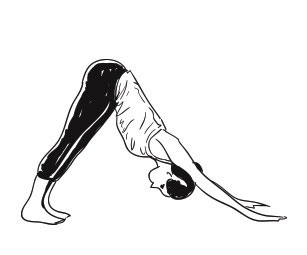
Breathing out, lift the hips and the tailbone up to bring the body into an inverted ‘V’ pose.
Tip to deepen this yoga stretch:
Step 9. Ashwa Sanchalanasana (Equestrian pose)

Breathing in, bring the right foot forward in between the two hands. The left knee goes down on the floor. Press the hips down and look up.
Tip to deepen this yoga stretch:
Place the right foot exactly between the two hands and the right calf perpendicular to the floor. In this position, make a gentle effort to push the hips down towards the floor, to deepen the stretch.
Place the right foot exactly between the two hands and the right calf perpendicular to the floor. In this position, make a gentle effort to push the hips down towards the floor, to deepen the stretch.
Step 10. Hastapadasana (Standing forward bend)

Breathing out, bring the left foot forward. Keep the palms on the floor. You may bend the knees, if necessary.
Tip to deepen this yoga stretch:
Gently straighten the knees, and if you can, try and touch your nose to the knees. Keep breathing.
Gently straighten the knees, and if you can, try and touch your nose to the knees. Keep breathing.
Step 11. Hastauttanasana (Raised arms pose)

If possible, try and keep the heels on the ground and make a gentle effort to lift the tailbone up, going deeper into the stretch.Ensure that your biceps are beside your ears. The idea is to stretch up more rather than stretching backward.
Step 12. Tadasana (Mountain pose)

As you exhale, first straighten the body, then bring the arms down. Relax in this position and observe the sensations in your body.
This completes one set of Surya Namaskar. Complete the round by repeating the steps. Only this time, start with taking the left foot behind in step number 4 and bringing the right foot forward in step number 10. Once done, you would’ve completed one round of Surya Namaskar.
You might also like to read 11 tips for better Sun Salutation practice or learn the Sun Salutation mantras.
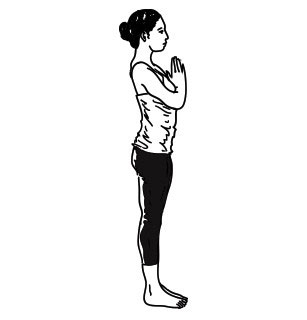
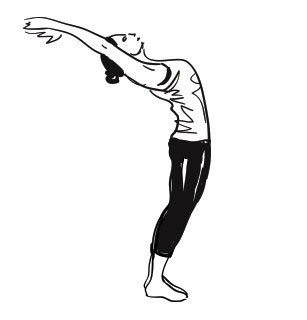
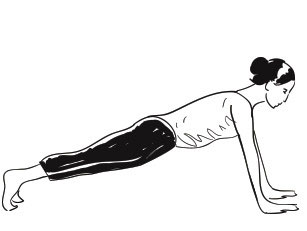


Thank you
ReplyDelete